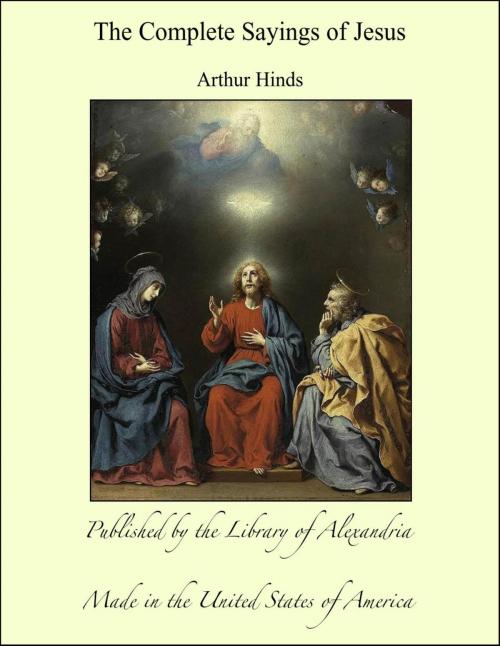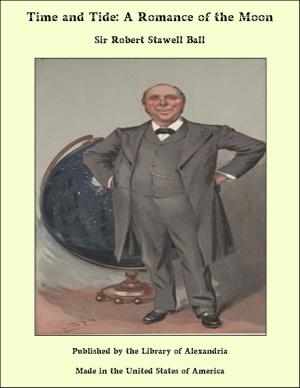The Complete Sayings of Jesus
Nonfiction, Religion & Spirituality, New Age, History, Fiction & Literature| Author: | Arthur Hinds | ISBN: | 9781465573209 |
| Publisher: | Library of Alexandria | Publication: | March 8, 2015 |
| Imprint: | Language: | English |
| Author: | Arthur Hinds |
| ISBN: | 9781465573209 |
| Publisher: | Library of Alexandria |
| Publication: | March 8, 2015 |
| Imprint: | |
| Language: | English |
THE number of words in the New Testament is 181,253. Only 36,450 of these 181,253 words are the words of Christ—barely over 20 per cent. Considered as verses, the New Testament has 7,959 verses, of which but 1,599 are sayings of Christ. These relatively few sayings of Jesus have not a place apart, but run in an uneven distribution through the four Gospels (a few in other Books); and in each of the four Gospels—Matthew, Mark, Luke, John—the "sayings" are unevenly distributed through the narrative. Often a "saying" recorded, it may be, by Matthew, is paraphrased, or even duplicated, by one or more of the other three biographers, none of whom seems to have intended either a chronological harmony with the others, or even a sustained sequence of his own. Accordingly, only the devoted reader of the New Testament, the habitual reader, is sufficiently the delver to have become familiar with Christ's sayings—really familiar—familiar with the sayings not only as severally set down by the four evangels, but also as one message, one gospel proclaiming the Saviour's great objective. If relatively few persons in a Christian country are habitual readers of the sayings of Christ, that may be because relatively few persons are delvers. The publisher is convinced that this book provides the means for the nonreaders of the New Testament to become familiar with Jesus the Christ, his sayings, and his great purpose, without delving—indeed without effort, so engaging is the story here recorded—a glowing short story.
THE number of words in the New Testament is 181,253. Only 36,450 of these 181,253 words are the words of Christ—barely over 20 per cent. Considered as verses, the New Testament has 7,959 verses, of which but 1,599 are sayings of Christ. These relatively few sayings of Jesus have not a place apart, but run in an uneven distribution through the four Gospels (a few in other Books); and in each of the four Gospels—Matthew, Mark, Luke, John—the "sayings" are unevenly distributed through the narrative. Often a "saying" recorded, it may be, by Matthew, is paraphrased, or even duplicated, by one or more of the other three biographers, none of whom seems to have intended either a chronological harmony with the others, or even a sustained sequence of his own. Accordingly, only the devoted reader of the New Testament, the habitual reader, is sufficiently the delver to have become familiar with Christ's sayings—really familiar—familiar with the sayings not only as severally set down by the four evangels, but also as one message, one gospel proclaiming the Saviour's great objective. If relatively few persons in a Christian country are habitual readers of the sayings of Christ, that may be because relatively few persons are delvers. The publisher is convinced that this book provides the means for the nonreaders of the New Testament to become familiar with Jesus the Christ, his sayings, and his great purpose, without delving—indeed without effort, so engaging is the story here recorded—a glowing short story.















